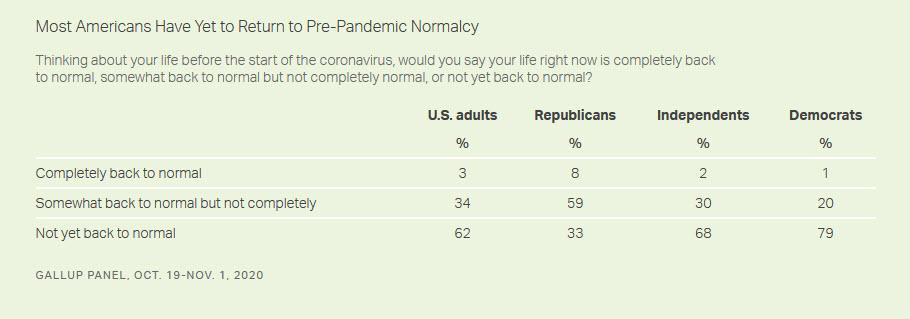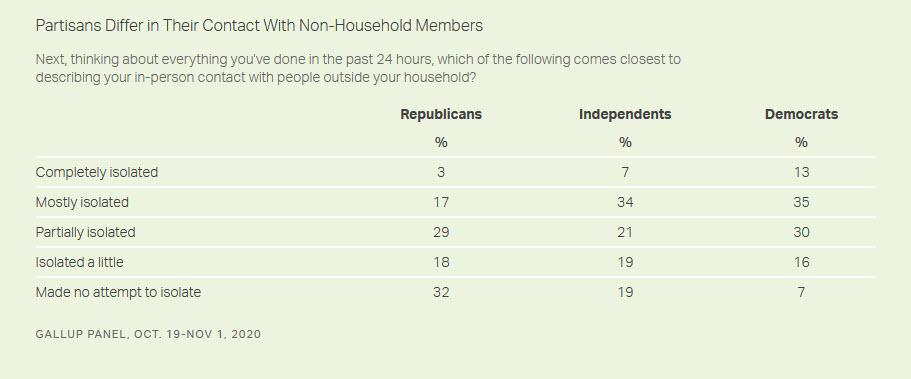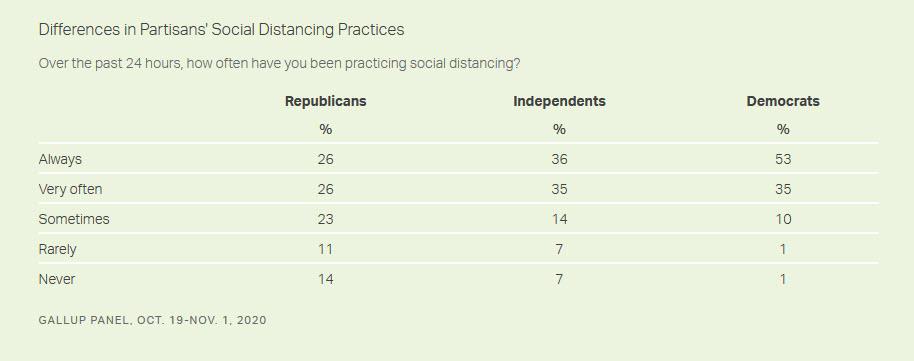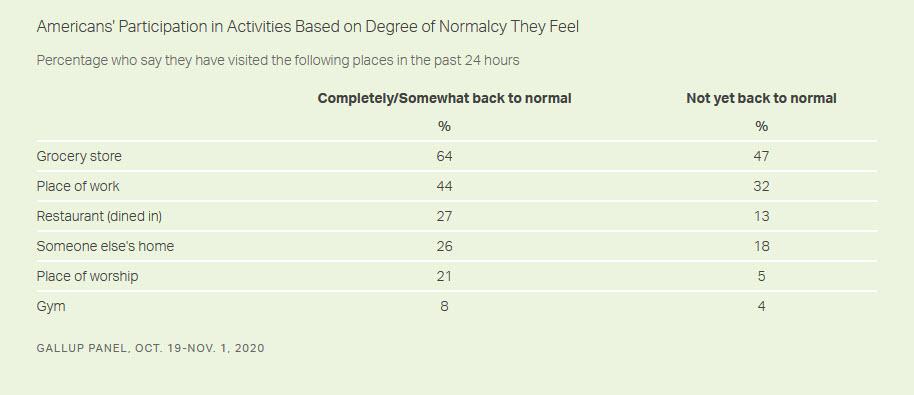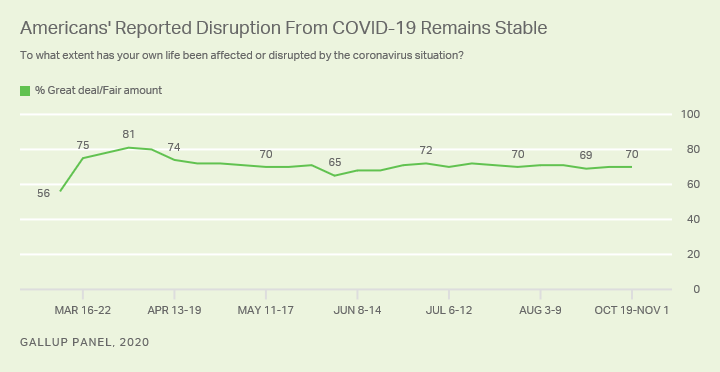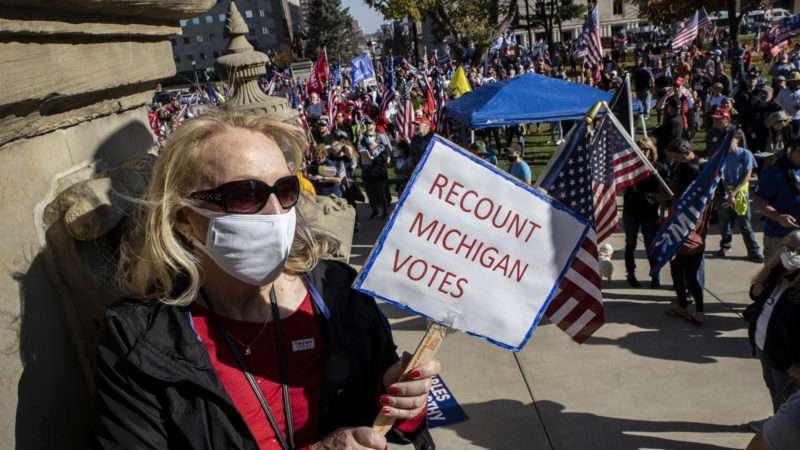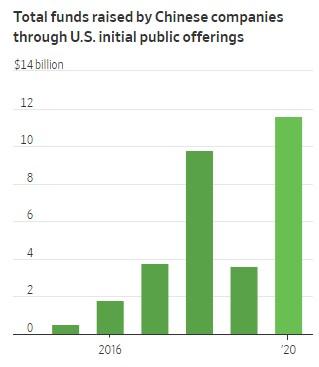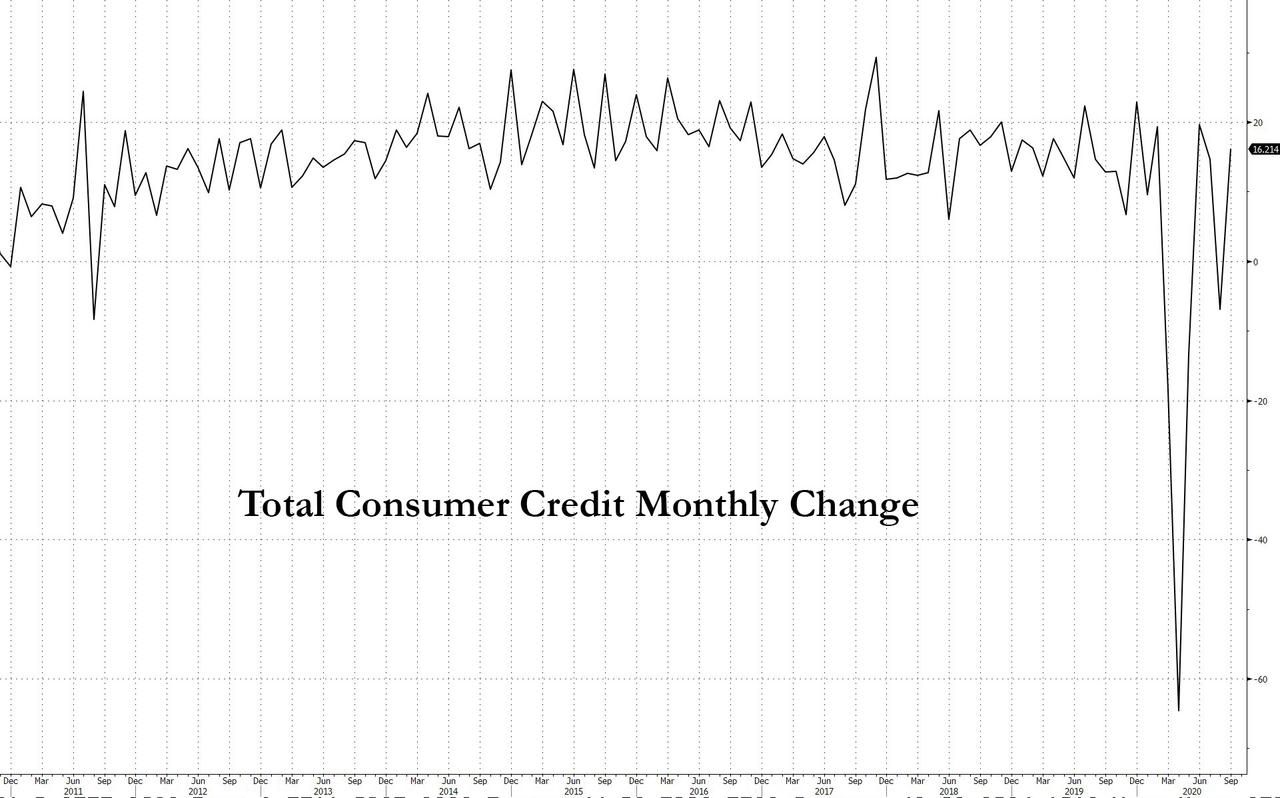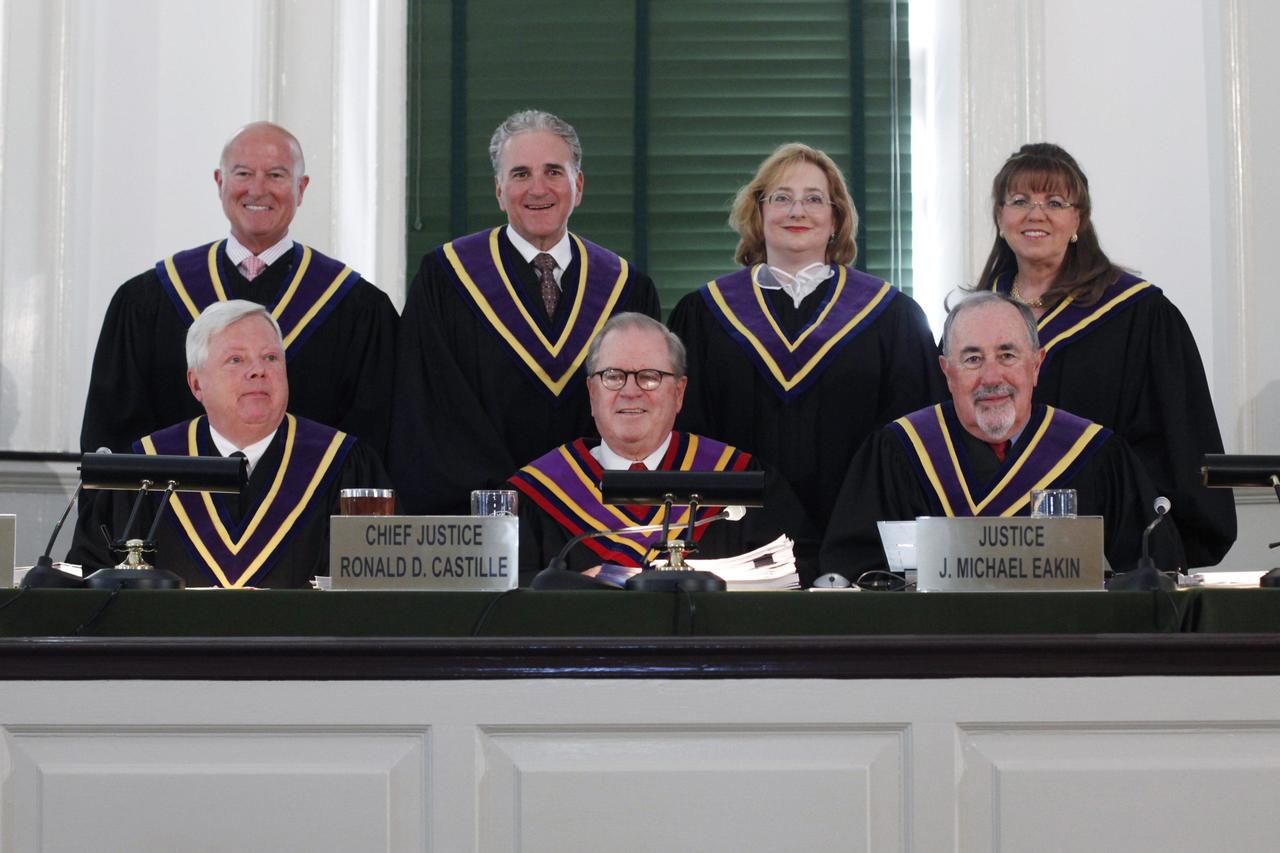67% Of Republicans, 21% Of Democrats Says Lives “Somewhat” Back To Pre-COVID Normal: Gallup
Tyler Durden
Wed, 11/18/2020 – 15:20
By Megan Brenan of Gallup,
Highlights:
-
Six in 10 Americans say their life right now is “not yet back to normal”
-
67% of Republicans, 21% of Democrats say life is at least somewhat normal
-
70% in U.S. say the pandemic has disrupted their life a great deal/fair amount
As COVID-19 cases were surging again across the U.S. last month, more than six in 10 Americans said their lives had not returned to pre-pandemic normalcy. Overall, 62% of Americans surveyed Oct. 19-Nov. 1 said their life right now is “not yet back to normal,” while 34% said theirs is “somewhat back to normal” and 3% said “completely” so.
Among a host of key demographic subgroups, Republicans are the most likely to say their lives have somewhat (59%) or completely (8%) gotten back to what they were before COVID-19. The combined 67% of Republicans feeling like life is back to normal is more than three times the rate among Democrats (21%) and more than double that among independents (32%).
Indeed, Gallup’s probability-based panel survey tracking Americans’ attitudes and behaviors related to the coronavirus situation has found discrepancies in partisans’ practices during the pandemic, which may explain why more Republicans say their lives have returned to normal.
The latest data find 48% of Democrats, 41% of independents and 20% of Republicans saying they have isolated themselves from people outside their household — either “completely” or “mostly” — in the past 24 hours. At the same time, 50% of Republicans say they have made little or no attempt to isolate themselves, compared with 23% of Democrats and 38% of independents who say the same.
Democrats are twice as likely as Republicans to say they “always” practiced social distancing the previous day (53% vs. 26%, respectively). Fully one-quarter of Republicans say they “rarely” or “never” did so.
Similarly, 73% of Republicans think the better advice for people who do not have symptoms of the coronavirus and are otherwise healthy is to lead their normal lives as much as possible. However, majorities of Democrats (93%) and independents (60%) believe it is better to stay home as much as possible to avoid contracting or spreading the coronavirus.
Americans’ Activities Differ Based on Degree of Normalcy They Feel
The degree of normalcy Americans feel they have in their life is directly linked to the daily activities they are participating in. That is, those who say their lives are at least somewhat back to normal are more likely than those who say their lives are not yet back to normal to have visited a grocery store, their workplace, someone else’s home, their place of worship and, to a lesser extent, the gym in the past 24 hours. Those who feel life has returned to some normalcy are also twice as likely as those who do not to say they have dined at a restaurant within the past day.
While it is clear that there are differences between these two groups, it is not possible to tell how close the current readings are to actual pre-COVID behaviors.
Americans’ Views of How Much COVID-19 Has Disrupted Their Lives Are Stable
Americans’ assessment of their own return to normal, pre-pandemic life is in line with their evaluation of how much the coronavirus situation has affected their life. In all, seven in 10 U.S. adults say it has disrupted their life “a great deal” (24%) or “a fair amount” (46%). Readings on this measure have been largely stable since April 20 after hitting highs between 74% and 81% earlier in the pandemic.
Just as Republicans are more likely than Democrats and independents to say their life is at least somewhat back to normal, so too are they more likely to say the coronavirus situation has not significantly disrupted their life. Fifty-one percent of Republicans, 81% of Democrats and 74% of independents say the pandemic has affected their life at least a fair amount.
Bottom Line
New coronavirus cases are trending sharply upward in the U.S., and a majority of Americans continue to say the situation is disrupting their lives. Few U.S. adults say life has completely returned to normal — yet there are sizable differences across key subgroups in those experiencing a partial return to normalcy. Partisanship remains the most significant driver of the public’s perceptions of the disease and their behaviors in response to it.
via ZeroHedge News https://ift.tt/3fan3o5 Tyler Durden

